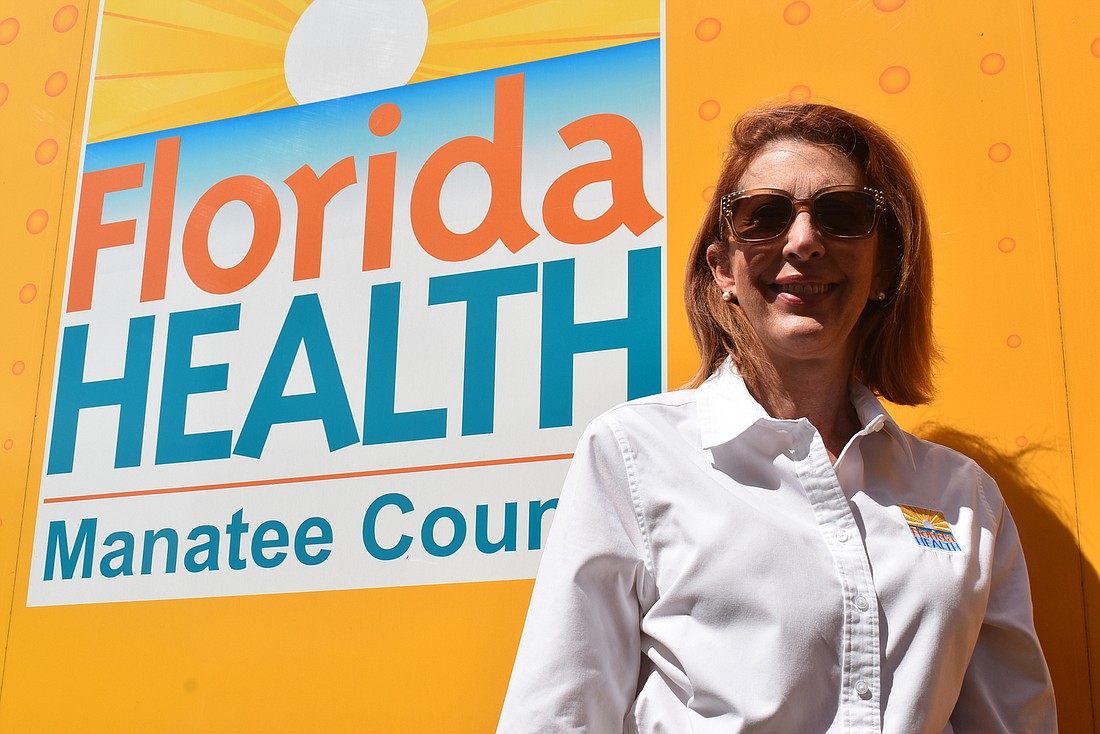- November 23, 2024
-
-
Loading

Loading

With the School District of Manatee County fast approaching the opening day of the school year Aug. 10, Lakewood Ranch's Jennifer Bencie is urging everyone of age to receive a COVID-19 vaccination to get one as soon as possible.
Bencie is the Manatee County Health Officer for the Florida Department of Health. She said it is a critical time because vaccines have not received emergency authorization from the Food and Drug Administration for children under 12 years old.
The School District of Manatee County has made wearing a face mask optional so Bencie said the concern is that kids under 12 will contract COVID and spread it to fellow students.
Lowering the exposure of those 12 and under children to unvaccinated people is important.
The concern is elevated because Bencie said the Delta variant of COVID-19, while not the dominant strain in Manatee County, is rising. Bencie said the majority of COVID-19 cases detected in Manatee County are the alpha variant, which originated in the United Kingdom and was first detected in Florida in December, according to the Centers for Disease Control.
Bencie said the failure to reach herd immunity means COVID-19 has not slowed down and will likely continue to mutate, possibly resulting in more contagious and severe strains of the virus if more people don’t get vaccinated.
“We don't know what the future holds, and that's why we're asking people to consider vaccination,” Bencie said. “It just helps them protect themselves against what's out here currently, and what might be coming in the near future.”
Bencie said the Florida DOH-Manatee County did not possess data on hospitalizations or deaths in vaccinated and unvaccinated people, in the county.
CDC Director Dr. Rochelle Walensky said July 16 more than 97% of people hospitalized with COVID-19 at the time in the U.S. were unvaccinated. The U.S.’s full vaccination rate on that date was 49%. Gov. Ron DeSantis said July 21 that COVID-19 vaccines are “saving lives,” adding that 95% of Florida’s new cases are among the unvaccinated.
Pamela Crain, a public health preparedness planner for the Florida DOH-Manatee County, said no vaccine is 100% effective at preventing illness altogether, which is why some vaccinated people have tested positive for COVID-19, instances known as breakthrough cases. However, the vaccines do decrease the chance of contracting COVID-19, and more importantly, Crain said vaccinated people who contract the virus are far less likely to become seriously ill.
“It will reduce hospitalizations and deaths,” Crain said. “All of the vaccines currently on the market have been shown to be effective, even with the Delta variant. That's why we encourage people to get vaccinated, so it minimizes that risk and mitigates any illness they might get.”
Bencie said COVID-19 infections have increased among younger people, who also have lower rates of vaccination than older people. Crain said older generations are more likely to know someone who became seriously ill or died from COVID-19, adding that seeing the virus’ ramifications up close might make them less reluctant to get vaccinated.
“It doesn't always correlate to an individual's medical history,” Bencie said. “Those with underlying medical conditions are more at risk, however, there are still healthy individuals who are getting the virus and having severe complications, and unfortunately, even death, when they've had no underlying medical conditions prior.”
With COVID-19 numbers up locally and nationally, Crain said it’s important for each individual to evaluate their own situation and decide their own level of risk. For example, vaccinated people with underlying conditions who feel they are vulnerable should consider continuing to wear a mask and social distance. Those who aren’t sure should talk to their primary care providers.
Bencie said people who have already contracted COVID-19 can get the virus again, albeit usually a less severe case. However, she said she hopes people who don’t want to get vaccinated because they’ve already had the virus consider the vaccines in order to prevent themselves from spreading the disease to others if they do contract it again.
Bencie said the county is working with a vaccine hesitancy coordinator to figure out how to increase the local vaccination rate. The county has been evaluating which areas in the community have lower rates of vaccination and reaching out to residents accordingly. The county has operated mobile vaccination units in some of those communities.
Crain said people who are unsure about getting vaccinated should talk to their primary care providers.
“Those relationships that you build over time develop that trust,” Crain said. “So when you have something that you need to absolutely know, it’s not coming from social media pages and misinformation. That professional is going to guide you the best way for you.”